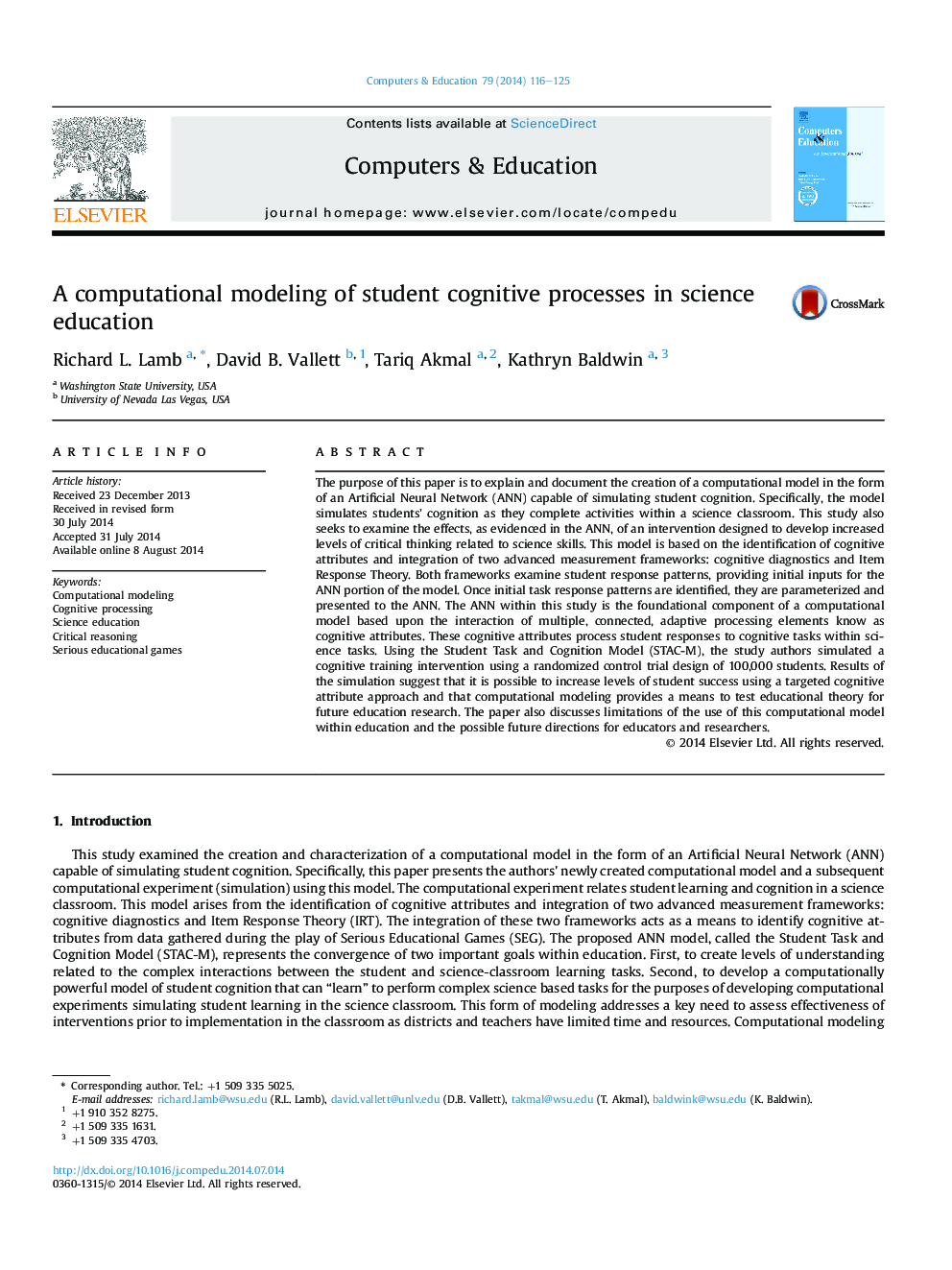| کد مقاله | کد نشریه | سال انتشار | مقاله انگلیسی | نسخه تمام متن |
|---|---|---|---|---|
| 348391 | 618183 | 2014 | 10 صفحه PDF | دانلود رایگان |
• We successfully model critical reasoning processes in science education.
• We examine the underlying attributes thought to influence successful task completion.
• Analysis of cognitive attributes is suggestive that critical reasoning is a gating attribute.
• Evaluation of factors found in the STAC-M indicates processes similar to real life.
The purpose of this paper is to explain and document the creation of a computational model in the form of an Artificial Neural Network (ANN) capable of simulating student cognition. Specifically, the model simulates students' cognition as they complete activities within a science classroom. This study also seeks to examine the effects, as evidenced in the ANN, of an intervention designed to develop increased levels of critical thinking related to science skills. This model is based on the identification of cognitive attributes and integration of two advanced measurement frameworks: cognitive diagnostics and Item Response Theory. Both frameworks examine student response patterns, providing initial inputs for the ANN portion of the model. Once initial task response patterns are identified, they are parameterized and presented to the ANN. The ANN within this study is the foundational component of a computational model based upon the interaction of multiple, connected, adaptive processing elements know as cognitive attributes. These cognitive attributes process student responses to cognitive tasks within science tasks. Using the Student Task and Cognition Model (STAC-M), the study authors simulated a cognitive training intervention using a randomized control trial design of 100,000 students. Results of the simulation suggest that it is possible to increase levels of student success using a targeted cognitive attribute approach and that computational modeling provides a means to test educational theory for future education research. The paper also discusses limitations of the use of this computational model within education and the possible future directions for educators and researchers.
Journal: Computers & Education - Volume 79, October 2014, Pages 116–125
